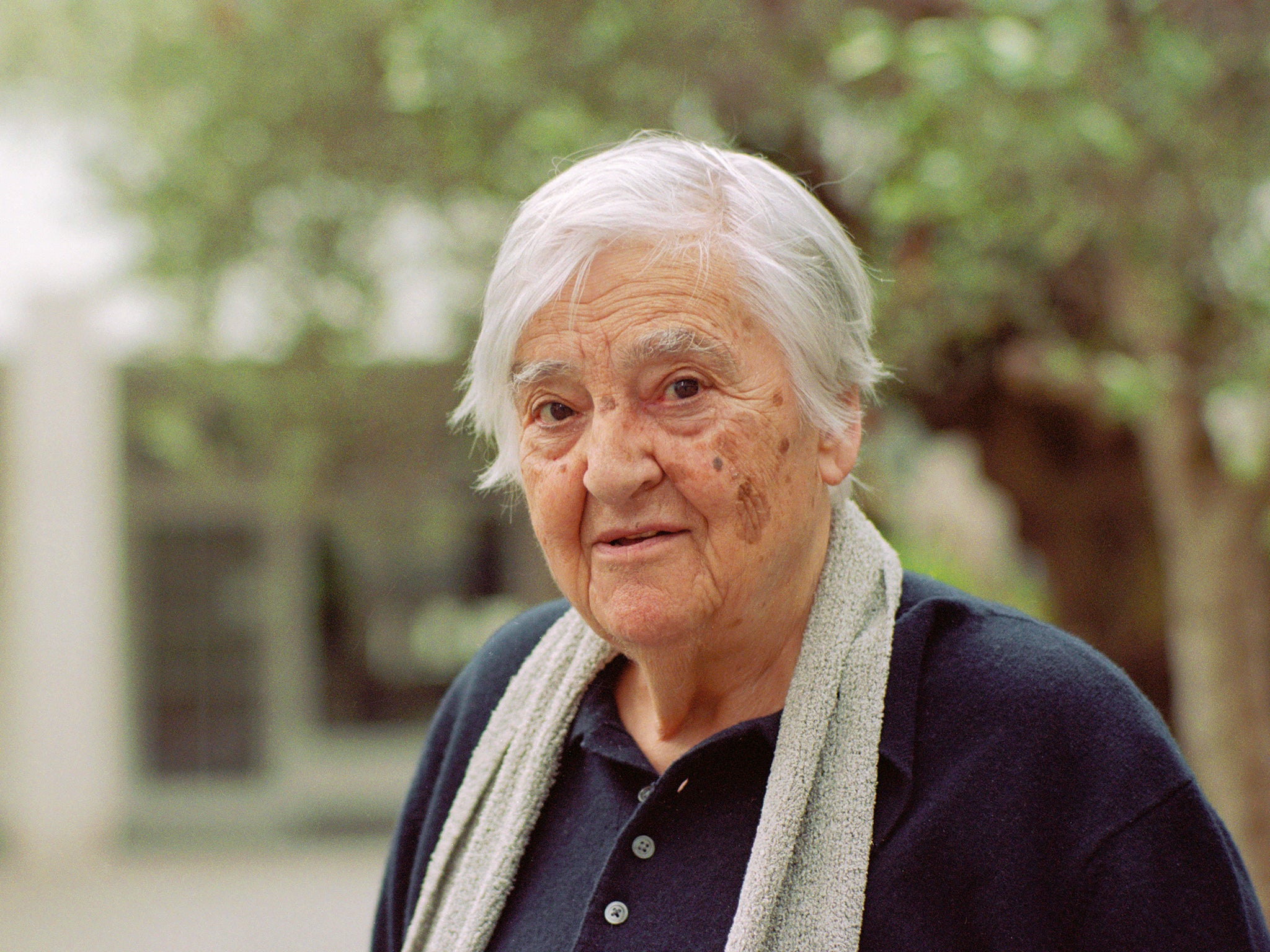Early Life and Education of Etel Adnan
Birth and Background Etel Adnan was born on February 24, 1925, in Beirut, Lebanon. Her father was a high-ranking officer in the Ottoman Empire and a native of Damascus, Syria, while her mother was a Greek from Smyrna (now Izmir, Turkey). This diverse cultural background profoundly influenced Adnan’s perspective on identity and belonging throughout her life.
Education Etel Adnan received her early education at French convent schools in Beirut. Her academic journey led her to Paris, where she studied philosophy at the prestigious Sorbonne University. She furthered her studies in the United States, earning degrees from the University of California, Berkeley, and Harvard University.
Early Career and Literary Beginnings
Teaching and Early Writing In 1958, Etel Adnan began teaching philosophy at Dominican College in San Rafael, California. It was during this period, amidst the Algerian War of Independence, that she started to feel the political implications of writing in French, her first language. This inner conflict prompted her to explore visual art as a means of expression.
Visual Art and Poetry Etel Adnan initial foray into visual art began with abstract oil paintings, characterized by vibrant colors and simple forms. Her artistic endeavors were accompanied by a return to writing, this time in English. Her works often reflect themes of war, displacement, and identity, influenced by her experiences and the socio-political climates she navigated.
Major Works and Achievements
“Sitt Marie Rose” (1977) One of Etel Adnan’s most notable works is the novel “Sitt Marie Rose,” written in French. The novel, set against the backdrop of the Lebanese Civil War, explores the intersection of gender and politics. It received the France-Pays Arabes Award and has been translated into several languages, establishing Adnan as a significant literary figure.
“The Arab Apocalypse” (1989) Another seminal work, “The Arab Apocalypse,” is a collection of poems that poignantly address the devastations of war and exile. The powerful imagery and experimental style of the poems highlight Adnan’s ability to convey deep emotional and political themes through her writing.
Griffin Poetry Prize (2020) Etel Adnan poetry collection “Time” won the Griffin Poetry Prize in 2020, further cementing her legacy as a distinguished poet. Her other notable poetry collections include “Shifting the Silence” (2020), “Surge” (2018), and “Night” (2016).
Artistic Contributions
Exhibitions and Public Art Etel Adnan visual art has been exhibited internationally, including at prestigious institutions such as the Sharjah Biennial, MoMA, and the Whitney Museum of American Art. Her public art projects, like the ceramic murals at Qatar University, demonstrate her belief in the transformative power of public art to humanize urban environments and bridge cultural divides.
Retrospectives and Honors In 2018, MASS MoCA hosted a retrospective titled “A yellow sun A green sun a yellow sun A red sun a blue sun,” showcasing Adnan’s paintings and written works. Her contributions to contemporary art were also recognized in the 2023 exhibition “Action, Gesture, Paint: Women Artists and Global Abstraction 1940-1970” at the Whitechapel Gallery in London.
Personal Life and Legacy
Life in Exile Etel Adnan spent much of her life in exile, moving between the United States, Lebanon, and France. Her personal experiences of displacement deeply influenced her artistic and literary works. She lived in Sausalito, California, and Paris with her partner, the artist and writer Simone Fattal.
Death and Legacy Etel Adnan passed away on November 14, 2021. Her legacy endures through her extensive body of work, which continues to inspire and resonate with audiences around the world. Etel Adnan’s unique ability to merge personal and political themes in her art and writing has left an indelible mark on both fields.
Conclusion
Etel Adnan’s life and work exemplify the profound impact of art and literature on understanding and navigating complex identities and socio-political landscapes. Her contributions to both fields remain a testament to her enduring influence and the power of creative expression.
For more detailed information about Etel Adnan’s life and work, you can visit Wikipedia, Poetry Foundation, and Artspace.
